#Dissolution of the Monasteries
Text

The ruins of Whitby Abbey in North Yorkshire, England, completed by drone lighting.
📷 DRIFT / Cyberdrone
NOTE:
Whitby Abbey was a 7th-century Christian monastery that later became a Benedictine abbey.
The abbey church was situated overlooking the North Sea on the East Cliff above Whitby in North Yorkshire, England, a centre of the medieval Northumbrian kingdom.
The abbey and its possessions were confiscated by the crown under Henry VIII during the Dissolution of the Monasteries between 1536 and 1545.
#Whitby Abbey#North Yorkshire#England#DRIFT#Cyberdrone#drones#Henry VIII#Dissolution of the Monasteries
110 notes
·
View notes
Text
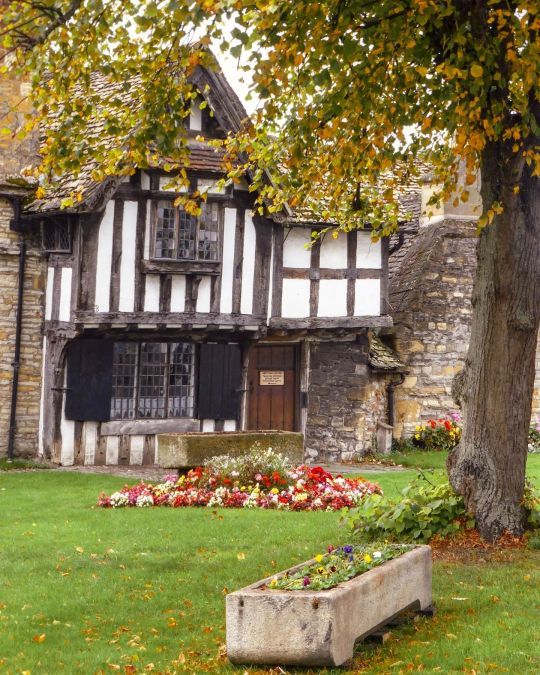
Evesham's Clergy House survived the Dissolution of the Monasteries
#Evesham#Clergy House#Benedictine#Tudor architecture#UK#half timbered#mediaeval#monastery#Worcestershire#Dissolution of the Monasteries#Henry VIII#English Reformation
53 notes
·
View notes
Text





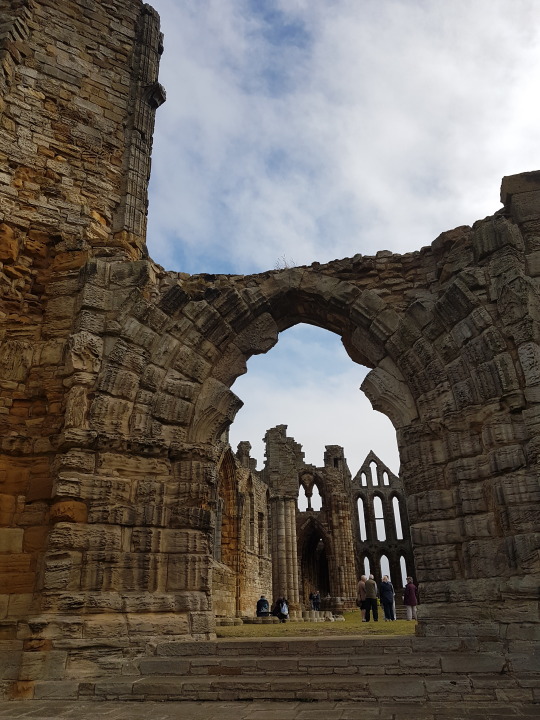
Whitby Abbey, September 2019
#whitby abbey#gothic architecture#gothic ruins#dissolution of the monasteries#a most noble ruin#of immense size#and full of beautiful and romantic bits#2019#yorkshire#whitby#whitby yorkshire
2 notes
·
View notes
Text
Research trip to Mount Grace Priory

An old interest in monks has resurfaced. I studied Carthusians once upon a time (their manuscripts, really). The interest flares up now and again. This meant that a visit I'd long put off was back on the cards. Drove down to Northallerton in North Yorkshire on Sunday to see the ruin of Mount Grace Priory.
Mountgrace was founded in 1398 by Thomas de Holand, a nephew of Richard II. Carthusians and their brand of piety was super-fashionable at the time (due to the strictness of their Rule and a general post-Black Death rethink) but having a founder connected to Richard II became a problem. In 1415, it was re-founded by Thomas Beaufort. Mountgrace only lasted until 1539, when the Suppression of the monasteries kicked in.
I was keen to look at the reconstructed monk's cell.
I took lots of photos.
Lots.
Here's a few.
View of the church and bell tower

Entering the monk's cell

Laybrothers cooked the food, were responsible for upkeep and general day-to-day activities under the watch of the Procurator. (Laybrothering was a prestigious position. A few bishops retired to take up the job.) Among lots of other jobs, they would deliver food into hatches like this so the monks wouldn't have to interact.

Straight ahead is the living quarters. The fireplace in this cell is smaller than the one found in the sacrist's cell.
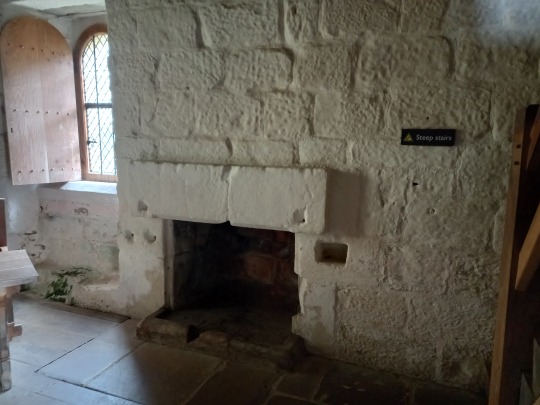
Desk by the windows. Lots of natural light.

A place to rest yourself and your reading materials

A place to rest yourself (the Carthusian schedule is brutal).

If you turn left, there's a nice glazed, private cloister looking out onto the cell garden.

If you turn right at the entrance, a covered walkway leads to the garden, freshwater drinking pipe and latrine (both plumbed in. Monastery plumbing was something else. I've seen the plans for London Charterhouse).

More garden! Small fruit tree and exterior view of the glazed private cloister.

Exterior view of the cell from the garden.

Let's go back inside and go upstairs! (These stairs really are steep. Believe the sign next to the fireplace. You have to come down backwards.)

Upstairs, we find the workshop! Spinning, weaving, copying books, woodwork, lots of useful activity.

Once that bell rings, you've got to go to church. A huge covered cloister once connected all those doorways and led to the church.
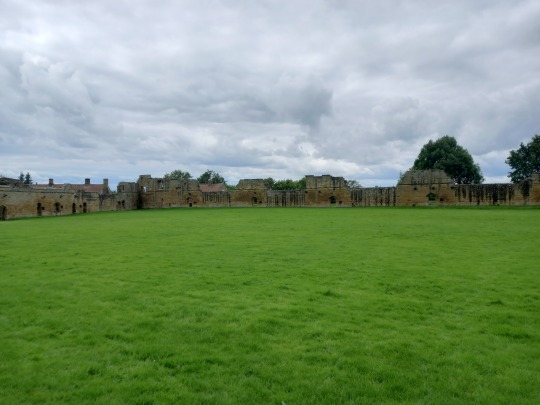
Can't remember if this is the church or chapter house I'm standing in.

Would've been a lovely window here, I bet.

The guest house was in better condition, mainly because Sir Lowthian Bell decided to restore it (and reconstruct the monk's cell). Here it is from the gardens.

There's still some original red plasterwork from the 14th century.

There's a decent museum in the guest house too. If you're into the Arts and Crafts movement, there's some Morris and Co. wallpaper and furniture, plus a couple of restored rooms. I liked this 14th century stone window looking into an Arts and Crafts lounge.

A pretty good day's research! Definitely recommend the place. Absolutely worth the trip.
#research#carthusians#mount grace priory#mountgrace charterhouse#carthusian#14th century#ruins#old ruins#late medieval#monks#arts and crafts#history#reformation#dissolution of the monasteries#charterhouse
6 notes
·
View notes
Text
The French Revolution and The Dissolution of the English Monasteries
So, slightly weird selection of topics to be thinking about in the same sentence, but French Revolution and the Dissolution of the Monasteries do have a surprising amount in common.
Firstly, there is the timescale on which both are operating. Although, as with most major events in history, there was a lot of buildup, and things were influenced for decades afterwards, both the French Revolution and the Dissolution of the Monasteries took at most a decade to run their courses through. The monasteries were dissolved in the decade between 1530 - 1540, and the Revolution was brought to a halt by the Coup of Brumiere in 1799, exactly a decade after it had begun.
Such big changes happening in such a short space must have been dizzying for the people who had grown up under the old system. And although many must have felt exhilarated, it’s unsurprising that many had doubts. When the French Revolution was starting to gather the momentum that would lead it toward the Terror, some of the more moderate reformers, such as the Marquis de Lafayette, thought it impossible that a country could function would a king as head of state, even if that king’s functional power was practically negligible. Later on, when the most Extremist of the Mountain were pushing things towards the declarations that “Terror is the Order of the Day”, the Indulgents were attempting to rein the situation in a bit, which went amazingly well for them all. A similar pattern is visible in the Dissolution: the Henrican Moderate Catholics were unwilling to take part in the reforms that swept the realm on the Accession of the fervently Protestant Edward VI, and there were multiple rebellions in the south and East of England over the dissolution of the monasteries. Moving forwards in time, Mary’s burning of Protestant bishops has an interesting parallel to the CSP and their Law of Suspects.
There is also the psychological effect of the Revolution and the advent of Protestantism to consider. The clarity and feeling that you were in personal commune with either your God, or the way your country was run, must’ve been an exhilarating and addictive sensation. Men like Camille Desmoulins and Thomas Cranmer seem almost bowled over by how sharp and well defined the new order is. However, the mysticism of the older Regimes, and how deeply ingrained into the very fabric of the country’s history, will have made them feel more secure. There were a lot of people willing to reform what was already there, but upending the familiarity of what they had grown up with was a step too far.
It’s always very interesting to consider the similarities and differences that occur in historical events. Not least because it leads one to speculate on what might have happened elsewhere, if events had taken a different turn.
(If there is anything I have somehow overlooked, or got a fact wrong, please do correct me.)
#frev#frev community#dissolution of the monasteries#napoleon#camille desmoulins#thomas cranmer#historical musings#lafayatte#Edward VI#mary i tudor
2 notes
·
View notes
Photo
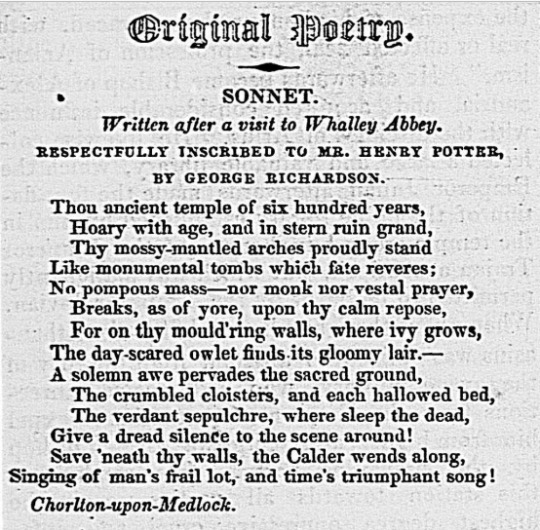
Today’s poem: a sonnet occasioned by a visit to Whalley Abbey.
#sonnet#poetry#george richardson#henry potter#ruin#dissolution of the monasteries#henry VIII#whalley abbey#lancashire#river calder
2 notes
·
View notes
Text
Athelstan--Our Greatest Monarch?
Athelstan–Our Greatest Monarch?
A recent poll searching for Britain’s ‘Greatest Monarch’, came up with the surprise winner of… drum roll, King Athelstan. Not that the Anglo-Saxon king wasn’t so great, but the winner is a little surprising since most people seem to have believed the ‘crown’ would go to Elizabeth I. (Yawn!)
I hope the voters actually remembered Athelstan in reality and have not just recalled his name from…
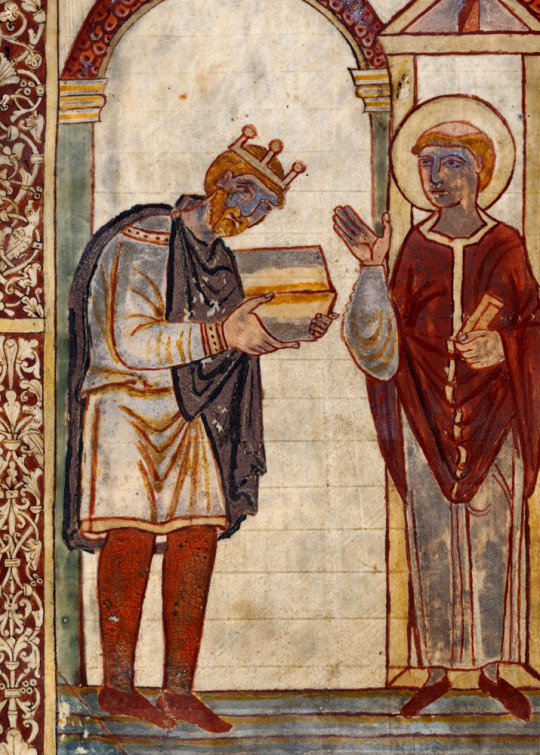
View On WordPress
#"The last Kingdom"#Alfred#Anglo-Saxons#Athelstan#Bernard Cornwell#books#Brunaburh#Cheshire#Constantine II#Dissolution of the Monasteries#Eadgyth#Edward the Elder#Elizabeth I#Germany#House of Wessex#illegitimacy rumours#legal reforms#Malmesbury Abbey#novels#piety#royal burials#Scotland#St. Aldhelm#St. Cuthbert#Tom Holland#Venerable Bede#Vikings#York
3 notes
·
View notes
Text
A VISIT TO THE PRIORY OF ST JOHN THE BAPTIST IN TRIM COUNTY MEATH
https://videos.files.wordpress.com/peYVDEU3/the-priory-of-st-john-the-baptist.mp4
THE DAY AFTER CHRISTMAS 2023
This Christmas I spent three days in Trim County Meath and it rained most of the time. On Wednesday the 27th it was so wet and stormy that it was impossible to take any photographs so I returned to Dublin ahead of schedule. As my Canon 5DIII performs very well in wet weather I decided to bring it with me instead of me rather than my Sony A7RIV or FX30. Another…
View On WordPress
#2023#26 December#5D Mk3#Bishop Simon de Rochfort#canon#Christmas 2023#county meath#Dissolution of the Monasteries#Fotonique#Historic Building#Infomatique#Ireland#Order of the Crutched Friars#priory#Ruins#St Stephen&039;s Day#Trim#William Murphy
1 note
·
View note
Text
Thomas Cromwell, Earl of Essex and Chief Minister to King Henry VIII
Thomas Cromwell, Earl of Essex and Chief Minister to King Henry VIII
Thomas Cromwell, Earl of Essex, 1532
Born in Putney, Surrey, c. 1485, Thomas was the son of Walter Cromwell whose various professions included blacksmith, fuller, cloth merchant, brewer and hostel owner. His mother’s name is unknown. Walter frequently served as a juryman, and at one point, he became a constable. He was able to secure good marriages for his daughters. His eldest daughter…
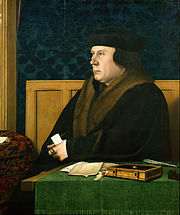
View On WordPress
#Anna of Cleves#Anne Boleyn#Archbishop of Canterbury#Dissolution of the Monasteries#Evangelicals#Henry VII#Henry VIII#Jane Seymour#Katherine of Aragon#King of England#Oliver Cromwell#Pilgrimage of Grace#Queen of England#royal supremacy#Thomas Cranmer#Thomas Cromwell#Thomas Wolsey#Tudor history
0 notes
Text
So I'm currently rewatching The Tudors Season 3 Episode 7 and the downfall of Cromwell is about to happen w/the arrival of Anne of Cleves. I can't decide if I feel sorry for Cromwell or not. It sucks that Henry executed him for such a stupid reason but at the same time he did help take down Anne Boleyn and framed her for adultery.
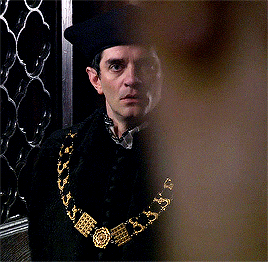
#Rewatching and seeing Anne arguing with Cromwell over the Dissolution of the Monasteries was frustrating.#A big reason why he took her down was because she wanted them to be reformed or re-directed to actually help the poor.#The irony if Henry VIII hadn't been so greedy and had listened to Anne Boleyn instead of Cromwell many people wouldn't have suffered.#The Pilgrimage of Grace would've been avoided if Henry hadn't targeted the monasteries in the way he did.
8 notes
·
View notes
Text
My take on fandom is that the combination of both overt hypersexualization in media and constant sex-negative messaging is giving teenagers psychological problems.
The solution to this, as it is in most cases, is to destroy organized religion.
15 notes
·
View notes
Text
currently "reading" (some i very rarely pick up and/or have been reading forever but i still have the intention of finishing them so i'm including them) :
the new testament and other early christian writings (anthology edited by bart ehrman)
the way of perfection, by st teresa of avila
les misérables (i read it in english in high school but i'm now attempting to read it in french)
alone of all her sex: the myth and the cult of the virgin mary, by marina warner
and i'm listening to the audiobook of the memoir priestdaddy by patricia highsmith.
1 note
·
View note
Note
now i'm thinking about the barrow family attending mass in a priest hole for some reason (also i've never wanted to be religious but I still to this day hold a grudge about the multiple times someone has mentioned catholicism and the protestants in the room r like "catholics aren't christians" IMMEDIATELY and with SUCH UNEARNED CONFIDENCE. anyway they could stand to be taken down a peg lol)
i’m from a catholic family and as far as i know priest holes weren’t used in the 1890s (sadly for us writers) but it definitely wouldn’t be something you would openly declare. i can see Mr Barrow Senior lecturing the children on who they are allowed to talk to their faith about.
i think some of that will have stuck with thomas. when people slander his faith (without knowing he’s catholic) he just stands there and takes it. he’s careful about who knows and when everyone find out (about 15 years after he’s employed at the abbey) its a massive shock.
growing up catholic and going to catholic schools i often heard the “so and so aren’t real christian’s” but the other way around. it took me so long (until i was 17) to unlearn what i had been taught about protestants. it’s so weird how indoctrination can change the way u think about perfectly reasonable people.
#i think i still harbour a little bit of a grudge but that’s just bcos i am so sad about the dissolution#i used to visit so many monasteries as a child and just be heartbroken at the state they were in#but i learnt that modern day protestants didn’t deserve my grudge for that#fuck you henry the eight fucking bastard#downton abbey#thomas barrow#catholic#stream of consciousness
10 notes
·
View notes
Text
So, why do people care so much about Cornish identity? Cornwall’s just a part of England right? Another county with some distinct foods and a funny accent, and they moan about the tourists- when they should be grateful for the money.
Except it’s not.
Whilst the rest of England was forming with a character influenced by Germanic and Norse cultures, Cornwall was holding itself separate as an independent Celtic kingdom, with strong links with Wales, Ireland and Brittany- as well as trading with the wider Mediterranean. For a long time, this kingdom included parts of Devon, but eventually the Celtic people were forced back past the Tamar, and at some point started referring to the land as Kernow, rather than Dumnonia (probably).
Even after the Norman conquest, in part because Cornwall came under the control of the Duke of Brittany, Cornwall retained elements of its unique culture, and certainly its language. There are existing works of literature written in the Cornish language (also called Kernewek) during the medieval period. Due to the active tin mining industry and the Stannary courts, they even had a separate legal system.
All of this continued until the start of the Tudor period, when Henry VII, desperate for money for his wars with Scotland, suspended the operation of the Cornish Stannaries, and imposed greater taxes. This ultimately led to the Cornish Rebellion of 1497. An army of as many as 15000 rebels marched towards Somerset, and ultimately to London, where the rebels met with Henry VII’s armies. Unfortunately, the Cornish lost the ensuing battle, and the rebel leaders were captured, killed and quartered, with their quarters being displayed in Cornwall and Devon. From 1497 to 1508, Cornwall was punished with monetary penalties, impoverishing the people, and land was given to the king’s (English) allies.
However, this wasn’t the death of Cornish culture or dreams of independence from England. Until 1548, Glasney college was still producing literature in Cornish- when it was destroyed in the dissolution of the monasteries, during the English reformation. The following year, 1549, the Cornish rose again- this time to demand a prayer book in their own language, which was still the first (and often only) language of most people in the region. The rebellion was also about the ordinary people vs the landowners, as shown by their slogan “kill all the gentlemen”.
Unfortunately, this rebellion failed too, and this time, it wasn’t just the leaders who were killed, but up to 5,500 Cornishmen- which would have been a significant proportion of the adult male population at the time. These factors combined are widely thought to have contributed to the decline of the Cornish language- although it was still widely in use centuries later.
Despite the failings of these rebellions, the Cornish retained a distinct language and their own culture, folklore and festivals. Mining, farming and fishing meant that the region itself wasn’t economically impoverished, as it was today. Even towards the end of the 1700s, there were still people who spoke Cornish fluently as a first language (including Dolly Pentreath, who definitely wasn’t the last Cornish speaker).
However, over time, the tin mines became less profitable, and Cornwall’s economy started to suffer. Especially in the latter part of the 19th century, many Cornish began to emigrate, especially to places like Australia, New Zealand (or Aotearoa), Canada and South America. Cornish miners were skilled, and were able to send pay back home, and along with the Welsh, influenced culture and sport in many of these places. Many mining terms also have their roots in Cornish language and dialect.
Throughout the 20th Century, Cornwall went through an economic decline- to the point where, when the UK was an EU member, Cornwall was receiving funding intended for only the most deprived regions in Europe. It was one of very few places in the UK to receive this funding- due to the levels of poverty and lack of infrastructure.
Part of the decline was also linked to the decline of historic fish stocks, such as mackerel. In the 70s and 80s, there was a mackerel boom- and large fishing trawlers came from as far away as Scandinavia (as well as Scotland and the north of England) to fish in Cornish waters. The traditional way of fishing in Cornwall used small boats and line fishing. The local fishermen couldn’t compete, and ultimately stocks were decimated by the trawlers. Many more families had to give up their traditional way of life. One could draw parallels here with worldwide indigenous struggles over fishing rights.
Despite this, Cornish communities retained their traditional folklore and festivals, many of which are still celebrated to this day. And throughout the 20th Century, efforts were made to preserve the Cornish language. Although there may not be any first language Cornish speakers left, it is now believed that community knowledge of the language was never truly lost.
Cornwall has since become a popular tourist destination. This brings its own problems- many people want to stay in self-catering accommodation and, more recently, air bnbs. This, alongside second homes, has gutted many Cornish communities. The gap between house prices and average wages is one of the largest in the country. Land has become extremely expensive, which hurts already struggling farmers. Roads can’t cope with the level of traffic. The one (1) major hospital can’t cope with the population in the summer. All of last winter, most Cornish households faced a “hosepipe ban” due to lack of water- yet in the summer, campsites and hotels can fill their swimming pools and hot tubs for the benefit of tourists.
Does this benefit Cornwall? Only about 13% of Cornwall’s GDP comes from tourism. The jobs associated with tourism are often poorly paid and may only offer employment for part of the year. People who stay in Air BnBs may not spend that much money in the community, and the money they pay for accommodation often goes to landlords who live upcountry and aren’t Cornish. Many major hotels and caravan sites are also owned by companies that aren’t Cornish, taking money out of the local economy.
Match this with a housing crisis where it’s increasingly difficult to rent properties long term, and buying a flat or house in Cornwall is out of reach of someone on the average salary and it’s easy to see why people are having to leave communities where their family lived for generations. This damages the local culture, and means centuries-old traditions can come under threat.
All of this feeds into the current situation; it feels like middle class families from London see Cornwall as their playground, and moan about tractors on the road, or the lack of services when they visit. People talk about theme park Cornwall- a place that’s built for entertainment of outsiders, not functionality for those who live here. More widely, a lot of people around the UK have never heard of the Cornish language, or view it as something that’s “extinct” or not worth preserving.
The Cornish are one of Britain’s indigenous cultures, alongside Welsh, Gaelic, Scots, Manx and others. And it’s a culture that’s increasingly under threat economically and culturally. We’ve been clinging on to our homes for a long time, and even now it still feels like we might be forced from them (indeed some of us are). So yes, Cornish people can seem excessively defensive about our identity and our culture- but there’s good reason for it!
#uk politics#cornwall#cornish#kernow#kernewek#celtic languages#minority languages#minority cultures#Cornish history#cornish langblr
274 notes
·
View notes
Text
Good Omens Historical Fic Recs!
While I'm waiting for my favorite authors to write their new post-s2 stories, I'm revisiting some of my favorite older fics and wanted to share some recommendations! More than anything else I've been craving stories that explore Crowley & Aziraphale's relationship throughout history. If you have a favorite historical fic that's not on here, please feel free to share!
All Seasons, by rfsmiley (20k, M)
Set in Tudor England, this story has Crowley becoming an advisor to Henry VIII and befriending Thomas More. Achingly good.
The blood of Christ, or, Is that any way to speak to your mother?, by doomed_spectacles (528 words, gen)
A brief Biblical story, in which Aziraphale attends the Wedding at Cana. Perfectly Pratchetty.
Communing with the Dead, by acommontater (927 words, gen)
Another Biblical story, but very different in tone: Crowley says the mourner's Kaddish for Judas Iscariot. Powerful.
Gods in the Gaslight, by anti_kate & rfsmiley (12.5K, T)
Aziraphale embarks on a career as a stage magician in Victorian London. Entrancing, atmospheric, heartbreaking.
knowing this will I reach for you, by Aria (24.6K, E)
A dozen or so scenes throughout history, starting with Eden. I absolutely love this story for a number of reasons, but one is that it explores Crowley's anger at God and Heaven after the Flood, which I think explains a lot about his state of mind during the Job story in season 2. It is also (so far) the only fic on AO3 with the tag "Crowley Doesn't Fall in Love He Saunters Vaguely Downwards."
A Letter from "Crawly" to Azirapil, by mostlydeadlanguages (486 words, gen)
Set in Mesopotamia, tiny but brilliant.
The Parting Glass, by equestrianstatue & omnishambles (16.8K, gen)
Seven scenes throughout history, from the dissolution of the monasteries in 1539 to the present day (well, 2019), by two of my favorite authors. Drily funny with just the right amount of angst.
Your Mirror, by equestrianstatue (28.2K, E)
Going backward and then forward in time, this story explores all the ways that Crowley and Aziraphale come together, drift apart, misunderstand each other, and still long for each other throughout the millennia. There are so many great little details in this story, plus *fans self* some extremely hot scenes.
The Weight of Well Tailored Clothes, by reserve (5K, E)
Speaking of extremely hot scenes, my bookmark comment for this one just says "Good lord." Crowley helps Aziraphale undress after he rescues him from the Bastille.
You, Soft and Only, by thehoyden (9.4K, E)
Starting in Mesopotamia with a kiss of convenience, and continuing through ancient Rome, a medieval monastery, Renaissance-era Florence, and more, this story is absolutely swoony.
133 notes
·
View notes
Text
An Abbey in Dublin Unearthed
Excavations in Dublin city centre have uncovered the remains of what was once one of Ireland’s most important medieval monasteries. St Mary’s was a House of Benedictines, followed by Savignac monks and then Cistercians, and it was exceedingly wealthy, with the added bonus of being permitted to claim goods from shipwrecks.
At times, it was quite a troubled place–the mayor of Dublin, Robert de…
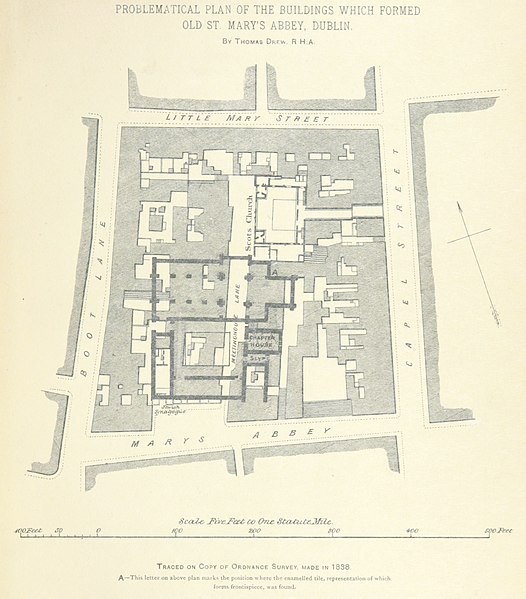
View On WordPress
#Archbishop of Dublin#bigamy#Dissolution of the Monasteries#Dublin#Earls of Ormond#Earls of Ulster#Earls of Wiltshire#Edward Bruce#Edward IV#executions#Henry VIII#Ireland#James Butler#John Earl of Shrewsbury#Lady Eleanor Talbot#Mael Sechnaill mac Maele Ruanaid#pre-contract#Richard Talbot#Robert de Nottingham#St. Mary&039;s Abbey#Towton#Walter Champfleur
0 notes